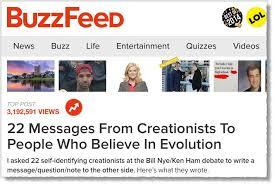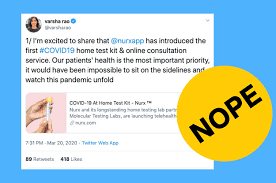Results: Let's Clear Up These Rumours!
Published on 08/12/2020
QUESTIONS
GO to COMMENTS
Comments
1.
1.
The beauty of the internet is that information and stories get shared and circulated quickly -- conversely the curse of the internet is that misinformation and rumours get shared and circulated quickly. One story that has been circulated on social media reads as follows: "Mask wearers beware... A caller to a radio talk show recently shared that his wife was hospitalized and told she had COVID and only a couple of days left to live. A doctor friend suggested she be tested for legionnaires disease because she wore the same mask every day all day long. Turns out it WAS legionnaires disease from the moisture and bacteria in her mask. She was given antibiotics and within two days was better. WHAT IF these 'spikes' in COVID are really something else due to mask wearing??" The post then goes on to specify "Copied and pasted - and checked - it's true!" Turns out, despite claims, this story is NOT TRUE. A quick fact check with Snopes or Reuters will show this story has been debunked, and a closer look at how you contract Legionnaire's Disease will further refute this claim. Problem is, many people still rely on social media stories as news, without checking facts, and continue to circulate these rumours, which therefore circulate false information. Have you ever fact checked a story you see on social media, or shared a post that turned out to be fake news?

Always fact check anything before sharing
25%
576 votes
Usually fact check stories before sharing
20%
461 votes
Never fact check any stories before sharing
6%
140 votes
Have shared a fake story
6%
134 votes
Have shared a story but removed it once I was informed it was fake
5%
125 votes
Never share anything on social media
26%
604 votes
Do not use social media
22%
522 votes
2.
2.
One sure fire way to get people to share an item on social media is to tell them that Facebook (or Twitter or Instagram etc…) is trying to suppress that specific item from spreading. That was the case recently as Facebook users recirculated an image purportedly showing a cross carved in honour of fallen firefighters while simultaneously claiming that this photograph was being deleted by the social network. This isn't the first time that a rumour of this kind has been shared on Facebook. In fact, "Facebook bans _____" could be considered its own subsect of internet disinformation. Recently Facebook had reportedly "banned" photographs of military amputees, nativity scenes, Christian-themed content, the Marines Corp. emblem, posts containing the word "Amen," atheism, and an image of a little boy saluting an American flag. Oddly enough, any of these images can still be found on social media, never once "taken down" or banned by Facebook. This is a common practise -- and done only to increase the profile of Facebook or other social media users. Have you ever shared a post because the post specifically states that "it will disappear" unless it is shared immediately?

I have
5%
111 votes
Never
32%
743 votes
Maybe in the past
10%
240 votes
Do not share these posts
15%
359 votes
Do not use social media
22%
523 votes
Never share any posts
16%
367 votes
3.
3.
"Click bait" is a all too common tactic to get attention. These sites, or even emails grab your attention with a sensational headline or promise of the five foods you need to stop eating now, the one thing everyone over the age of 50 must stop doing immediately, the one food you need to cure cancer, and on and on. The content of most click bait articles is secondary to the headline, a fact which makes much more sense when you realize the purpose of click bait. The aim of sites like Buzzfeed and Upworthy isn't to sell you a product or service, to push an opinion or a view. Their purpose is to generate page views, which in turn generates ad revenue. You don't even need to click 'Like' or 'Share'-- just the activity of clicking the link will have increased their visibility to your network. Have you ever "clicked" on any of these types of pages?

I have
15%
344 votes
I did in the past, but not recently
15%
342 votes
Maybe once or twice
16%
366 votes
No
32%
754 votes
Do not use any social media
23%
537 votes
4.
4.
A study by researchers at the Massachusetts Institute of Technology's Media Lab examining about 126,000 stories shared by some 3 million people on Twitter from 2006 to 2017 found that false news was about 70 percent more likely to be retweeted by people than true news. The stories examined in the study were reviewed by six independent fact-checking organizations including Snopes and Politifact to assess their veracity. False stories spread significantly more quickly and broadly than true stories in all categories of information, but this was more pronounced for false political news. Have you ever shared a false news story on social media?

Yes
4%
90 votes
I have in the past, but not any longer
6%
140 votes
Maybe once or twice
10%
226 votes
Never
39%
912 votes
I'm not sure if I did
16%
381 votes
Do not use social media
25%
594 votes
COMMENTS


